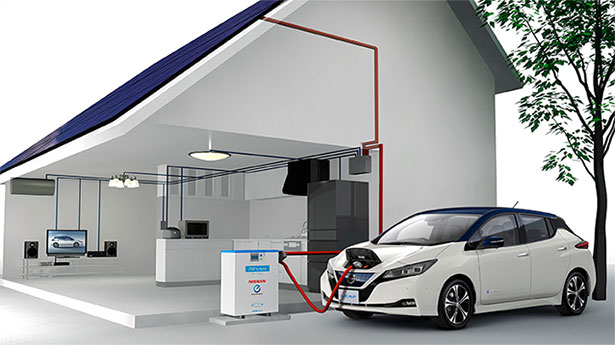
Vehicle-to-Grid Electric Car Technology
By now we all know that e-cars are the way of the future. Renewable energy technology is developing quickly to keep up with the demand of a growing population, with consumers and automakers working in tandem to develop multi-faceted solutions that go beyond mere transport.
When Irishman Damien Maguire found that he could connect the batteries of his electric cars to his home in Dublin to store energy from the electric grid, as well as his backyard solar panels, it finally put an end to his family’s frustration with frequent power outages. But the 41-year-old electrical engineer’s DIY solution did more than just that – it inspired automakers and utility providers to rethink the notion of electric car batteries and consider it as a modular storage source for public power.
Essentially, a vehicle-to-grid system would allow electric car owners to become small-scale electricity traders who would charge up their vehicles when there was plenty of energy to go around, and pump it back onto the grid when there was a need for it.
FAST FACTS:
- By 2040 more than 50% of new cars will be electric.
- New model electric cars hold enough energy to power the average household for several days.
- Most e-cars sit idle for up to 90% of the day.
- Energy generated from wind and solar farms often goes wasted because there is nowhere to store it.
- The huge lithium-ion battery the South Australian government uses to store solar energy on the edge of the Outback is comprised of the same units that power certain e-cars.
As the foremost seller of electric cars in the world, Nissan Motor Co. has begun to test the waters for the potential of a vehicle-to-grid system in Japan. E-car owners can potentially save up to R480 on their power bill monthly if they adopt the system, but the trick lies in getting drivers to charge up when there is a power surplus, and to share power when there is a deficit. This is proving challenging, since only 7000 out of 80 000+ Nissan Leaf EV owners have adopted the system.
In the meantime, Nissan continues to finetune the system. They recently partnered with Tokyo Electric Power Co. to expand on their vehicle-to-grid experiments, and realised that the system will only become fully functional when there are electric fueling stations throughout major cities, since most people aren’t at home in the early afternoon when there is enough power to go around to fuel up.
These are early days, but the technology that will fuel our future is on the horizon. Keen an eye on the blog in coming months as we share more exciting developments from the Nissan camp. For more information on the Nissan Leaf, or to book a test drive to see how it handles on the road, get in touch with your nearest Nissan dealer today.

